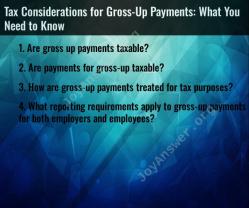Is a credit union better than a bank?
Determining whether a credit union is better than a bank depends on individual financial needs, preferences, and priorities. Both credit unions and banks offer financial services but differ in their structures, operations, and focuses, leading to various advantages and considerations for consumers:
Credit Unions:
- Ownership: Owned by their members, who are also customers. Members typically have voting rights and a say in decisions.
- Structure: Non-profit organizations focused on serving members rather than maximizing profits.
- Customer Service: Known for personalized service and community-focused approach.
- Interest Rates and Fees: Often offer competitive interest rates on savings accounts and loans, and may have lower fees compared to banks.
- Membership Eligibility: Typically have membership criteria based on employment, geographic location, or associations.
Banks:
- Ownership: Owned by shareholders; profit-driven institutions focused on maximizing shareholder returns.
- Branch Networks: Often have larger branch and ATM networks, providing convenience in terms of accessibility.
- Product Offerings: Might offer a wider range of financial products and services compared to credit unions.
- Technology and Innovation: Tend to invest heavily in technology, offering advanced online and mobile banking services.
Considerations:
- Fees and Rates: Compare fees, interest rates on loans, and account offerings between banks and credit unions.
- Service Preferences: Assess preferences for personalized service and community involvement versus access to a wider range of services.
- Accessibility: Consider the importance of branch and ATM access, which might differ between credit unions and banks.
Ultimately, Choosing Between the Two:
- Personal Fit: The "better" option depends on individual preferences, financial goals, and the specific offerings that align with your needs.
- Research and Comparison: It's advisable to research and compare the products, fees, rates, and service quality of both credit unions and banks before making a decision.
Some individuals might prefer the community-oriented approach and potentially lower fees of credit unions, while others might value the convenience and diverse product offerings provided by banks. Assessing personal priorities and comparing the offerings of both types of institutions can help in making a more informed decision based on individual financial circumstances.
- Factors Determining the Suitability of a Credit Union
Deciding whether a credit union or a traditional bank is a better fit for your financial needs depends on several factors:
Ownership Structure: Credit unions are member-owned, meaning their profits are returned to members in the form of lower fees, better interest rates, and more personalized service. Banks, on the other hand, are shareholder-owned, prioritizing profits for shareholders.
Non-Profit Status: Credit unions operate as non-profit organizations, focusing on serving their members' financial needs rather than maximizing profits. This often translates into better member benefits and lower costs.
Community Focus: Credit unions often have a strong focus on serving their local communities, offering tailored financial products and services to meet the specific needs of their members.
- Impact of Credit Union Structure on Member Benefits
The structure of credit unions, being member-owned and non-profit, directly influences the benefits they offer to their members:
Lower Fees: Credit unions typically charge lower fees than traditional banks, including ATM fees, overdraft fees, and account maintenance fees.
Higher Interest Rates: Credit unions often offer more competitive interest rates on savings accounts, certificates of deposit (CDs), and loans.
Member Dividends: As profits are returned to members, credit unions may distribute dividends, providing an additional return on investment for their members.
Personalized Service: Credit unions often emphasize personalized service, building relationships with their members and providing tailored financial advice.
- Scenarios Favoring Banks Over Credit Unions
While credit unions offer many advantages, there are situations where a traditional bank might be a better choice:
Wider Branch Network: Banks generally have a more extensive network of branches and ATMs, providing greater accessibility for customers.
Specialized Services: Some banks offer specialized services, such as wealth management or investment banking, that may not be readily available at credit unions.
International Presence: Banks with global operations may provide better options for international transactions or banking needs abroad.
Larger Product Range: Banks may offer a broader range of financial products, including investment options, insurance products, and specialized loans.
- Financial Needs and Goals Suitability for Credit Unions
Credit unions are often well-suited for individuals and families seeking:
Lower Costs: Credit unions' lower fees and interest rates can save money over time, particularly for budget-conscious individuals.
Personal Attention: Those who prefer personalized service and financial guidance may find credit unions' focus on member relationships appealing.
Community Involvement: Individuals who value supporting their local community may find credit unions' community focus appealing.
Basic Banking Needs: For those seeking basic banking services like checking and savings accounts, loans, and credit cards, credit unions can provide competitive options.
- Customer Satisfaction and Financial Services Approach
Credit unions and banks differ in their approach to customer satisfaction and financial services:
Credit Unions: Credit unions emphasize member satisfaction, focusing on providing personalized service, lower fees, and competitive interest rates. They may offer fewer specialized services but prioritize member benefits.
Banks: Banks prioritize profitability and may offer a wider range of financial products and services, including specialized services tailored to specific needs. They may have larger branch networks and global reach but may charge higher fees and have less personalized service.
Ultimately, the choice between a credit union and a traditional bank depends on individual financial needs, preferences, and goals. Both offer unique advantages, and comparing their offerings and considering your specific circumstances can help you determine the most suitable option for your financial well-being.













